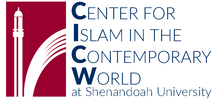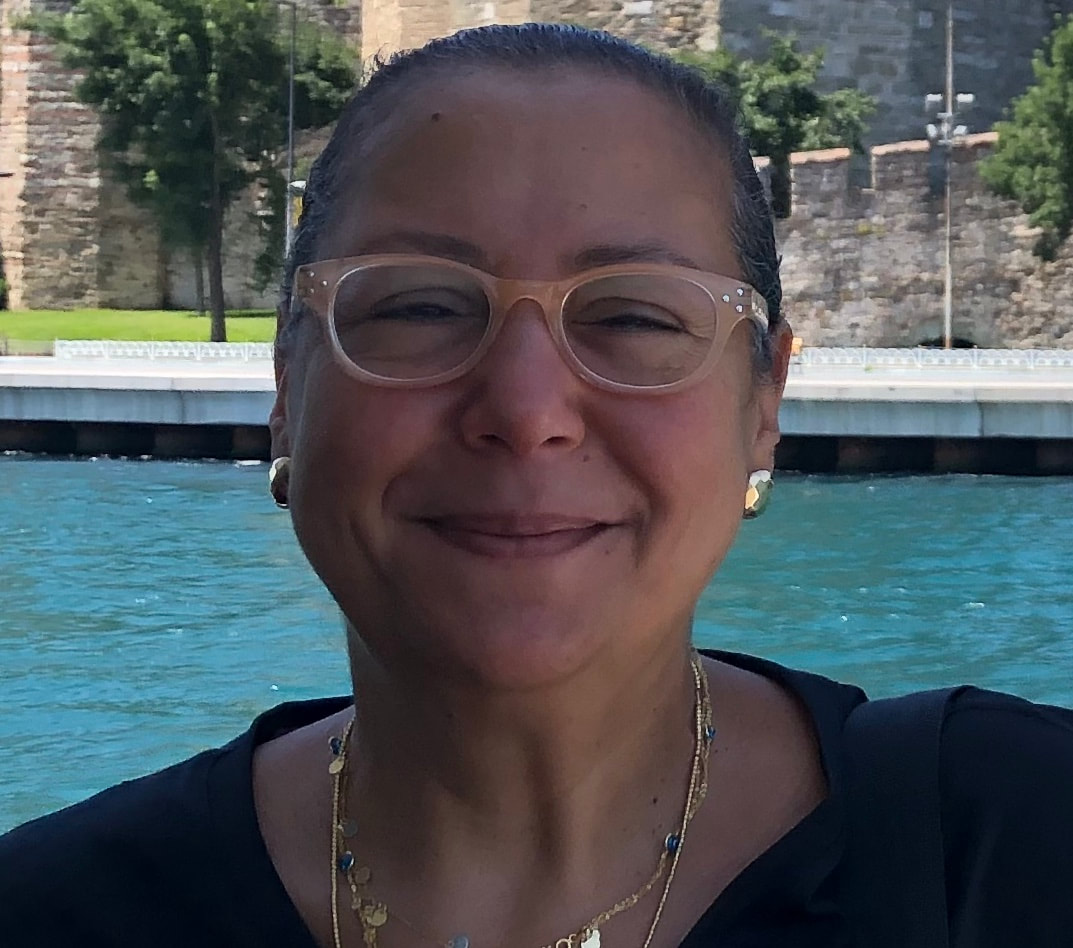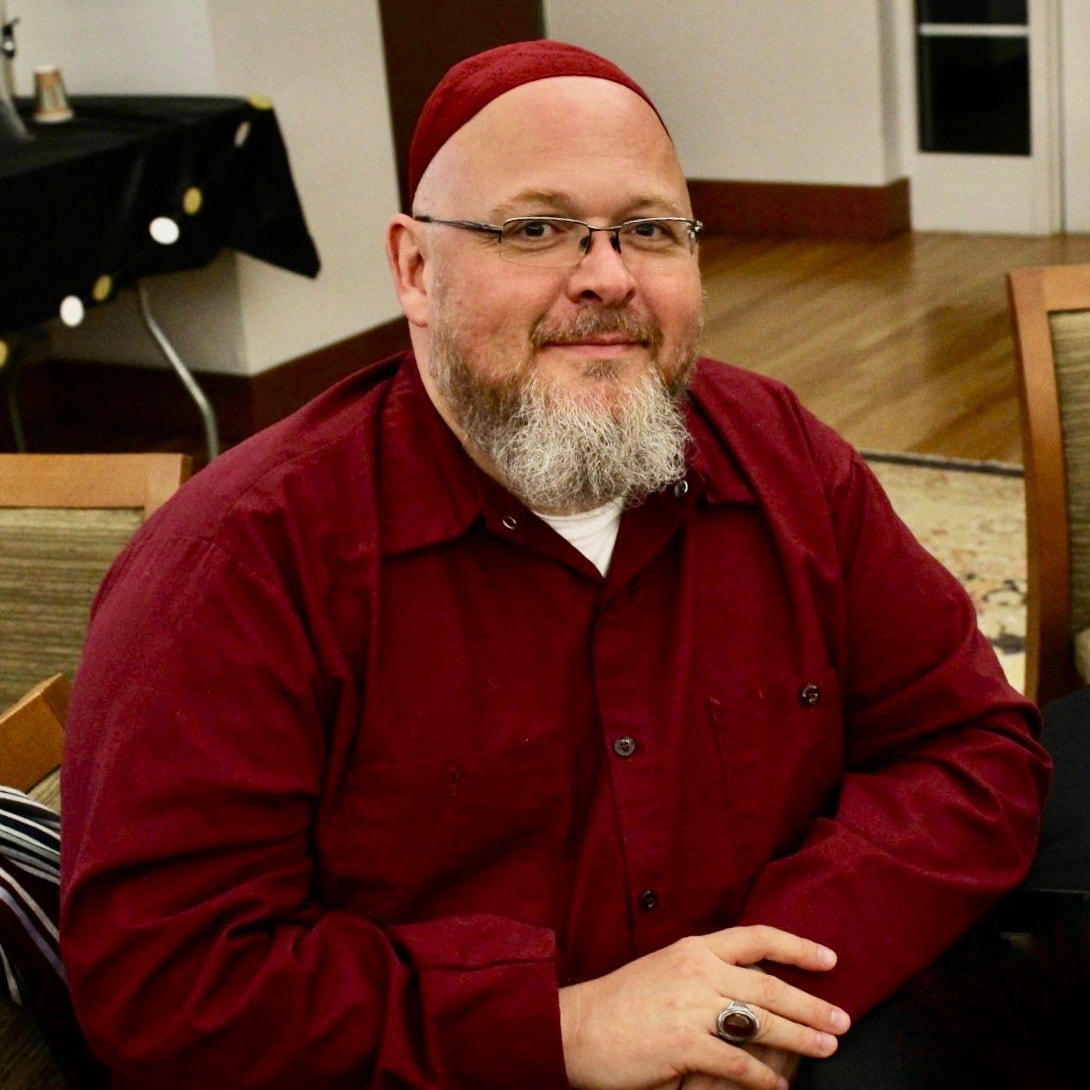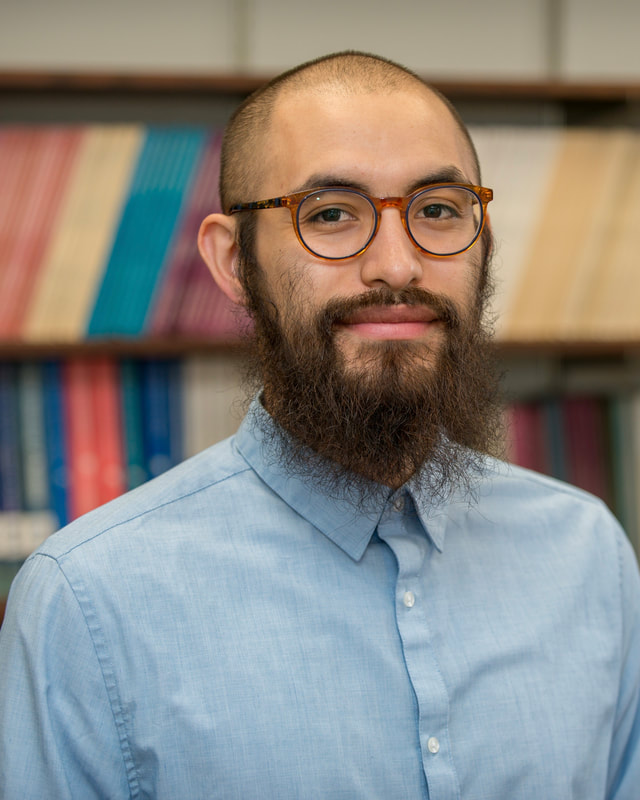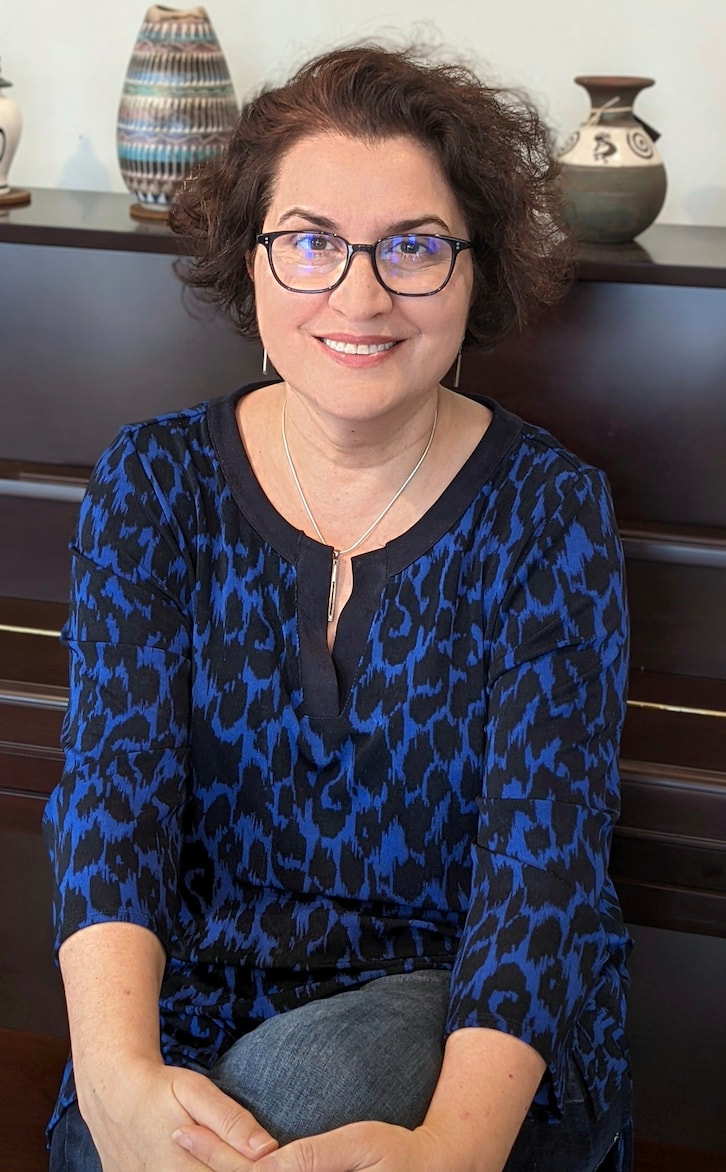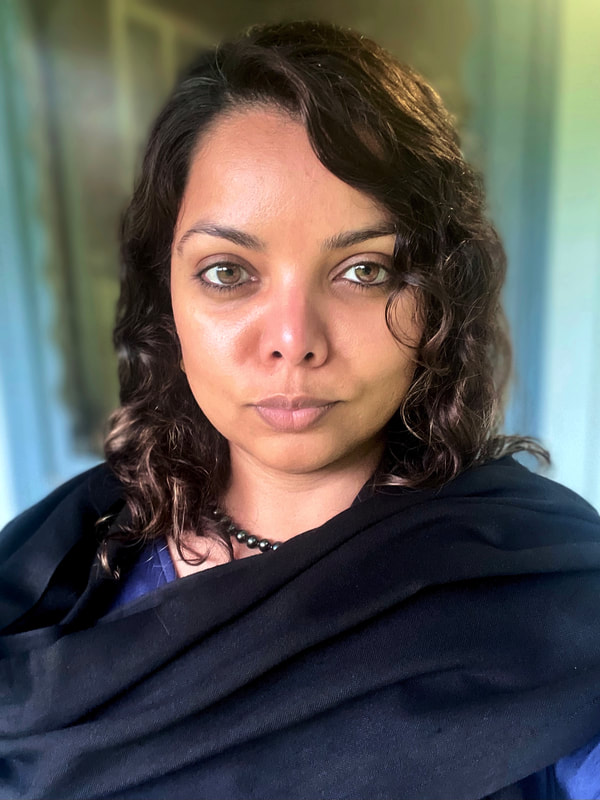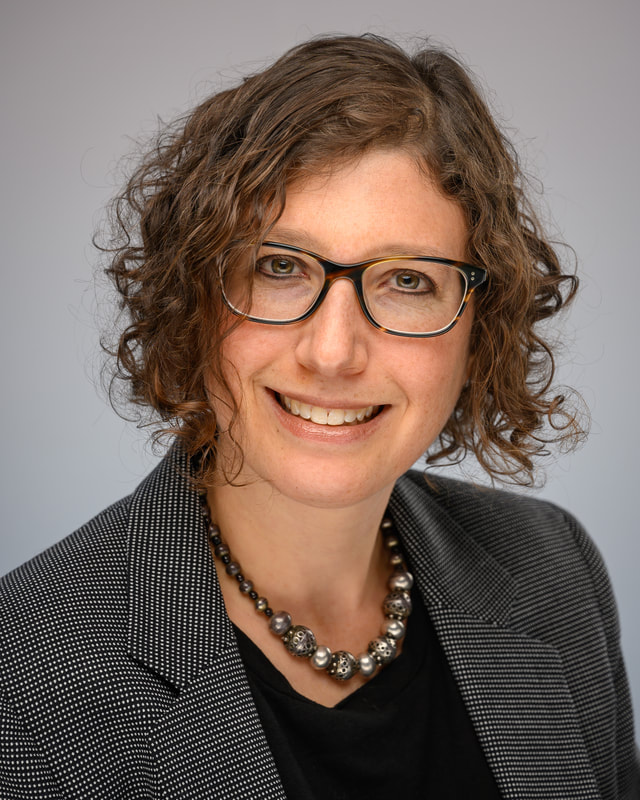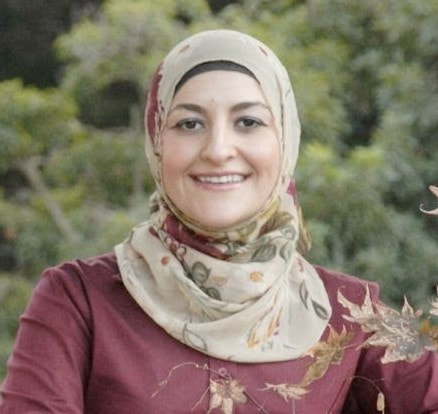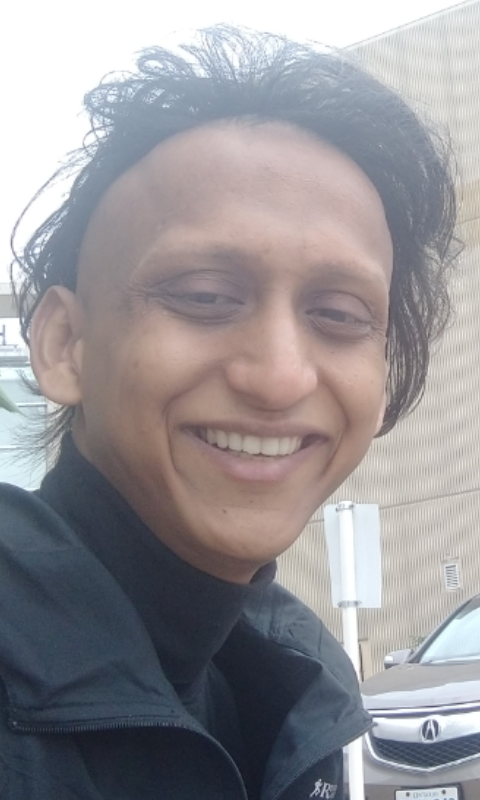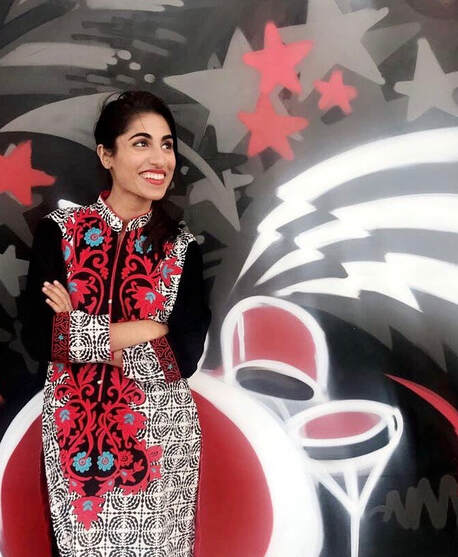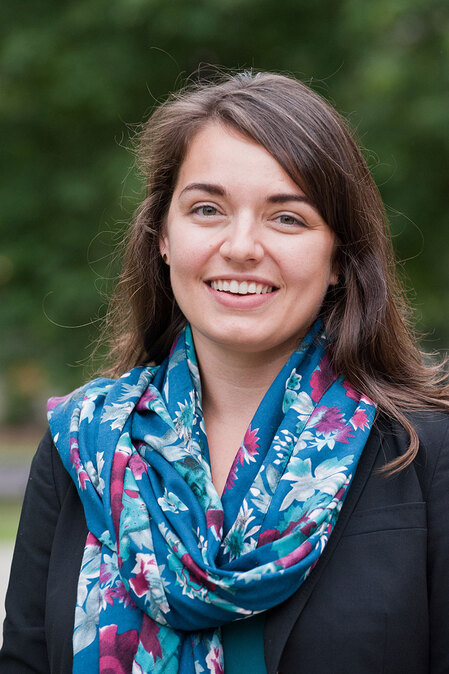2022 GRANT RECIPIENTS
This year's grants have been awarded under our "Islam on the Edges" research programs. We are honored to have been able to award research grants to such an accomplished and diverse group of scholars and researchers. To learn more about "Islam on the Edges," please click here.
Deina AbdelkaderDeina Abdelkader is an international relations expert who focuses on Islamic activism and the politics, religion and culture of the Middle East and North Africa. Her specialization is comparative democratization in the Muslim world. As an associate professor of political science at UMass Lowell, Abdelkader teaches classes in Islam and Politics and legal thought, Middle East and North African Politics, and Women in Islam. She currently directs the Peace and Conflict Program at her home institution. As an Islamic legal scholar, she is one of three women on the Islamic Jurisprudential Council of North America.
She is one of the co-founders of an international research cohort (COIRIS) the Cohort for the study of Islam and International Relations in 2013, Rapallo, Italy. She Is Co-Director of COIRIS. She also is Co-Editor in Chief for a journal with Brill: “International Journal of Islam in Asia”, and Co-Editor in Chief of a book series with Palgrave Publishing: “Islam and Global Studies” Abdelkader has published: Islamic Activists: The Anti-Enlightenment Democrats (2011), Modernity and the Principle of Public Welfare (2003), and Social Justice in Islam (2000). She also co-edited and contributed to Islam and International Relations (2016), and Islam in International Affairs: Politics and Paradigms (2018) A Treatise on Democracy and Public Welfare in the Muslim World By discussing the theoretical work of Kheir el Din al Tunsi as a “treatise” this research will debate that our knowledge about democracy is tinted by the inability to see “cultural fluidity”, i.e. the fact that Muslim and Western civilizations borrowed from each other historically and therefore affected each other over the years. Examining Tunsi’s writing will shed light on whether those ideas could be taken as an Islamic indigenous interpretation of democracy today. |
Shane AtkinsonShane Atkinson is a Master of Divinity in Islamic Chaplaincy student at Bayan Islamic Graduate School. He was awarded the Muhammad Ali Spiritual Leadership Full-Tuition Scholarship to support his graduate studies. He completed an internship and residency at the University of North Carolina Medical Center’s Clinical Pastoral Education program. He currently teaches in the Clinical Pastoral Education program and serves on their Professional Advisory Group. He currently serves as the Associate Chaplain for Muslim Life at Elon University in North Carolina. His research explores the intersection of Islamic spirituality and Southern culture.
Where the Mountains Meet: The Devotional Arts of Sacred Harp and Sufi Dhikr When one thinks of a genuinely American form of music, jazz usually comes to mind. However, there is another uniquely American music, the Appalachian Gospel music known as Sacred Harp. Sacred Harp singing is a unique polyphonic mode of devotional music that resembles the Sufi chants of the Qadiri Sufi order of the Caucasus. Both musical forms are in danger of becoming extinct as the global ‘mono-culture’ spreads into every recess of the planet’s diverse cultural landscape. However, the same forces of commercial globalization that lead to the homogenization of culture, also enable modes of trans-local communication and exchange that give rise to new hybrid cultural forms and affinities. This multimedia project examines the specificities and commonalities of these two disappearing forms of vocal and spiritual worship in a way that contributes to their preservation and reconfiguration. |
Alexis Rolando ChavezAlexis Rolando Chavez is a doctoral candidate in the Department of Anthropology at the University of Chicago. He is a recipient of the National Science Foundation Graduate Research Fellowship (NSF-GRFP) and the Ford Foundation Predoctoral Fellowship. At the University of Chicago, his research has been supported by the France-Chicago Center and the Center for the Study of Race, Politics, and Culture.
Alexis earned his B.A. in Sociocultural Anthropology and Middle East/South Asia Studies from the University of California-Davis, where he received the Suad Joseph Undergraduate Research Award. Alexis also holds an M.A. in Sociocultural Anthropology from the University of Chicago. |
Ayfer Karakaya-StumpAyfer Karakaya-Stump (Ph.D. Harvard University) is Associate Professor of History at the College of William and Mary. Before taking up her current position, she was a post-doctoral fellow for two years at Cornell’s Society for the Humanities. She works on medieval and early modern Anatolian history, Ottoman-Safavid borderlands, Sufism, nonconformist movements, Alevi/Bektashi communities, and gender in Islamic(ate) societies. She is the author of the prize-winning book The Kizilbash-Alevis in Ottoman Anatolia: Sufism, Politics and Community (Edinburgh University Press, 2019/2020). She has published articles in Turcica, International Journal of Turkish Studies, British Journal of Middle Eastern Studies, National Identities, and BELLETEN.
Creating a Digital Map of Alevi Villages and Sacred Sites I am putting together a digital map of Alevi villages and sacred sites as a pilot component of a larger, web-based digital Alevi Archive of the endangered cultural heritage of the Alevi communities in Anatolia. The Alevis are a marginalized and historically persecuted ethno-religious minority, who make up around fifteen percent of the population of modern Turkey, in addition to smaller, related communities in the Balkans. I envision the Alevi Archive as a dynamic and open digital archive that preserves documents and manuscripts from family archives, photographs of people or objects of material culture, and audio-visual recordings of Alevi traditional music and rituals. Creation of such a map will not only constitute the foundation of the larger project which will be geographically organized; it will also be used as an example when applying for funding for the rest of the project. |
Aliyah KhanAliyah Khan is Associate Professor of English, and Afroamerican and African Studies, and Director of the Global Islamic Studies Center, at the University of Michigan, Ann Arbor. Dr. Khan is the author of Far from Mecca: Globalizing the Muslim Caribbean (Rutgers UP 2020), the first academic monograph on the history, literature, and music of enslaved African Muslims and indentured Indian Muslims in the Caribbean. Far from Mecca received honorable mention in the 2021 Modern Language Association Prize for a First Book. Dr. Khan’s work also appears in GLQ, Guernica, Caribbean Quarterly, Sapelo Square, National Public Radio, and the Washington Post.
“The Indo-Caribbean Qasida: Muslim Devotional Songs in Guyana and Trinidad” is an Islamic music research project that explores the transmission of South Asian devotional, poetic qasida songs to the Indo-Caribbean, following the 1838-1917 relocation of half a million Indian indentured laborers from British-colonized India to sugar plantations in Trinidad, Guyana, Jamaica, Suriname, and elsewhere. I trace the linguistic adaption of qasidas from Urdu to English creoles, and the use of qasida songbooks as repositories of Indian Islamic heritage, and I interview contemporary popular qasida artists. Though falling outside the religious bounds of Quranic recitation and Islamic nasheeds, qasidas have devotional themes, particularly Prophetic honor, and are performed competitively and at Milad birth, anniversary, and other praise-giving religious functions in the Muslim Indo-Caribbean. Caribbean qasidas are also subject to global Islamic debates around the permissibility of music and bid’a (innovation), exposing local tensions between religion and culture that I also examine. |
Mara LeichtmanMara Leichtman is Associate Professor of Anthropology at Michigan State University. She is author of Shi‘i Cosmopolitanisms in Africa: Lebanese Migration and Religious Conversion in Senegal (Indiana University Press, 2015) and co-editor of New Perspectives on Islam in Senegal: Conversion, Migration, Wealth, Power, and Femininity (Palgrave Macmillan, 2009). She co-edited two special journal issues: The Shiʿa of Lebanon: New Approaches to Modern History, Contemporary Politics, and Religion in Die Welt des Islams (2019) and Muslim Cosmopolitanism: Movement, Identity, and Contemporary Reconfigurations in City and Society (2012). In 2016-2017, Dr. Leichtman was a visiting Fulbright Scholar at American University of Kuwait.
South-South Humanitarian Efforts to fight COVID-19: The Case of Kuwaiti Islamic NGOs in Tanzania Arab Gulf states are surpassing Western development agencies in providing assistance to certain African countries, yet these financial flows remain understudied and misunderstood examples of South-to-South aid. Dr. Leichtman’s multi-sited book project, “Humanitarian Islam: Transnational Religion and Kuwaiti Development Projects in Africa,” analyzes Islamic ethical frameworks as motivations for giving. She explores Kuwaiti humanitarianism as a tripartite system grounded in individual donors’ complex relationships with God, (civil) society, and the state. Case studies of trans-regional connections with Islamic NGOs in Tanzania and Senegal assess the cultural and religious impact of Kuwaiti funding in East and West Africa while complicating the “giver/receiver” binary. Global Islamic NGOs open up new sites for ethnographic research, bringing Middle East Studies in conversation with African Studies. With the generous support of CICW, Dr. Leichtman will return to Tanzania to update her research on how Kuwaiti charitable organizations have responded to COVID-19 in Africa. |
Leyla Ozgur AlhassenDr. Leyla Ozgur Alhassen is a Qur’anic studies scholar and the author of Qur’anic Stories: God, Revelation and the Audience (Edinburgh University Press, 2021) and How the Qur’ān Works: Reading Sacred Narrative (Oxford University Press, forthcoming). Her scholarship revolves around Qur’anic stories, style and interpretation in literature, performance, and art, across historical periods, languages, and disciplinary boundaries. Ozgur Alhassen is working on a book on hierarchies of beings in the Qur’an, and is the author a number of articles. She has a PhD from the University of California, Los Angeles, in Near Eastern Languages and Cultures.
Satan’s Sin in the Qur’an: Hubris, Knowledge, Power and Interpretation In a story about Adam and Iblis (Satan) in the Qur’an, God creates Adam, then commands the angels to bow to him. All of the angels bow, except Iblis. When God asks Iblis why he refused, he explains that he is made of fire and Adam is made of dirt, and fire is better than dirt. A sin of Iblis’s is hubris, and when we widen our scope, we see hubris in other Qur’anic stories as well. My third book, Hierarchies of Beings in the Qur’an: Anthropocentrism, Egalitarianism and Tawhid, will analyze the Qur’anic thematic and narratological portrayal of hubris and its connection to disbelief. Furthermore, it will discuss how the Qur’an uses literary devices to inculcate morals and virtues such as humility. The Center for Islam in the Contemporary World (CICW) research grant will support the writing of a chapter of this book. |
Rehan SayeedRehan Sayeed is a Ph.D. candidate in the Department of Anthropology, McGill University. He received a B.A. (Hons.) and an M.A. in Anthropology from the University of Victoria and Memorial University respectively. Ethnographically focused in the Greater Toronto Area, his research explores how madrasa's pedagogy becomes an epistemic conduit for a radically different conception of God. He is also interested in understanding how theo-pedagogical concerns guide revisions to the madrasa's curriculum and how the Canadian context inflects these concerns. His research has been funded and recognized by Fonds de recherche du Québec (FRQSC) and other granting units across McGill.
The Canadian Heirs of the Prophet: Reading Texts, Reaping God in an Islamic Seminary His dissertation project, tentatively titled The Canadian Heirs of the Prophet: Reading Texts, Reaping God in a Madrasa, examines how Canadian madrasas engage with contemporary issues of social and political valence and what effects these engagements have on the God-centred pedagogy of Islamic Sciences ('Ulūm al-Dīn). To this end, his research seeks to understand how pedagogical and theological concerns guide revisions to madrasas' curricula and how the Canadian context inflects these concerns; thus, exploring how madrasa's pedagogy [potentially] becomes an epistemic conduit for a radically different conception of God—a more agentive, active, and engaged entity who not only dictates, allocates, and corrects but also argues, adjusts, and ignores. As an institutional ethnography of a Sunni madrasa in the Greater Toronto Area, the project also seeks to understand how anthropology (and ethnography) can reckon with theology at the centre of which is the transcendental figure of a powerful monotheistic God. |
|
Salwa Tareen
Salwa Tareen is a Ph.D candidate in Sociocultural Anthropology at Boston University. She holds a B.A. from Kalamazoo College and an M.T.S. from Harvard Divinity School with a focus on religion, ethics, and politics. Salwa's research broadly explores the interplay between religion, gender, and the politics of care in Muslim South Asia. Her dissertation, in particular, focuses on urban disaster and Islamic charity in Karachi, Pakistan. In addition to her academic work, Salwa is an arts organizer, poet, and essayist.
A City on the Edge: Charity, Care, and Critique in Karachi, Pakistan Salwa's research explores how residents of Karachi, Pakistan, one of the world's megacities and arguably its largest Muslim city, utilize charitable giving to address everyday disasters of infrastructure and governance. As inheritors of a postcolonial city writ large, Karachiites have struggled to negotiate competing religious and ethnonationalist claims to sovereignty, while enduring infamous crises of infrastructure that pervade city life. Yet, Karachi’s disastrous urban climate is also home to a unique culture of giving and reciprocity, which is the focus of my ongoing ethnographic fieldwork. Motivated by Karachi’s disastrous conditions, charitable workers across the city repair roads, clear garbage heaps, drain sewage, and provide rescue services through mechanisms of religious giving. The present project considers the material and ethical dimensions of such giving as a means to care for one another and the city itself. |
|
Kirsten Wesselhoeft
Kirsten Wesselhoeft is Assistant Professor of Religion at Vassar College in Poughkeepsie, New York. She is an ethnographer of Islam and social change, currently focused on contemporary France. Her research has been funded by the Fulbright Program, the Social Science Research Foundation, and the Center for the Study of Religion and the City. Her recent writing has been published in the Journal of the American Academy of Religion, Sociology of Islam, Political Theology, and the Routledge Handbook of Islam and Gender, among other sources. She holds a Ph.D. in the Study of Religion from Harvard University.
Fraternal Critique: The Politics of Muslim Community in France, narrates the projects of community formation that shape the contemporary French Muslim scene, and investigates why the French state perceives the idea of Muslim community as a threat. Fraternal Critique is grounded in years of ethnographic research conducted between 2008 and 2019, combined with analysis of French political texts. It highlights the new analyses of race, class, and gender that emerge out of current conversations in Muslim Paris, and locates these arguments in long Islamic and Republican traditions of critical thought. Readers are drawn into a religious culture across greater Paris that is nurtured at evening salons, in grassroots nonprofits, among student groups at French universities, in civil rights organizations, and through arts initiatives. At the same time, the book takes up the recent crackdown on French Muslim collective life and offers new analyses of secularism and the specter of “communalism.” |
About our research grant program
Please check our website periodically for calls for research grants and fellowships. We do not accept unsolicited proposals. For further information, please email us at [email protected]. Thank you!
Our research programs
Islam on the Edges |
Interpreting the Qur'an in the Contemporary World
|
